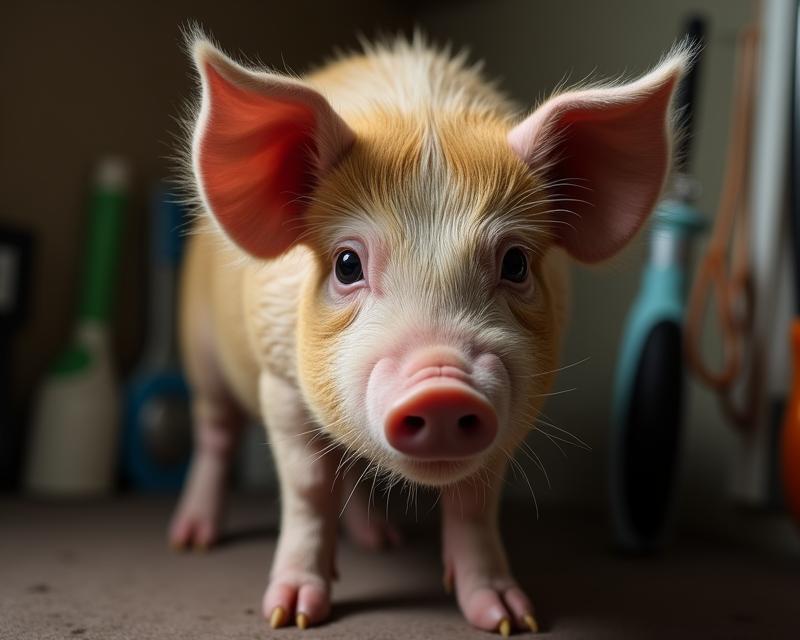Piggy Hair Loss: What's Going On?
Publish in Health el 28/06/2025 19:05
Is Your Pet Pig Losing Hair? Here's What to Do!
Seeing your pet lose hair can be worrying, especially when it seems excessive. If your adorable pot-bellied pig is shedding more than usual, it's a good idea to investigate. While some shedding is normal, significant hair loss can indicate an underlying health issue. This article will explore potential causes of hair loss in pet pigs and what you can do to help your little friend.

Common Causes of Hair Loss
Several factors can contribute to hair loss in pigs. One common culprit is a nutritional deficiency. Pigs need a balanced diet rich in protein, vitamins, and minerals. A diet lacking in these essentials can lead to poor coat health and increased shedding. Another frequent cause is parasites – both internal and external. Fleas, mites, and lice can irritate the skin, causing pigs to scratch and lose hair. Allergies, whether to food or environmental factors, can also manifest as skin problems and hair loss. Finally, hormonal imbalances can sometimes play a role, particularly in older pigs.
What to Look For
Pay close attention to *where* the hair loss is occurring. Is it patchy, or is the hair falling out all over? Is the skin red, inflamed, or scaly? Are there any bumps, sores, or signs of irritation? Also, observe your pig's behavior. Is it excessively scratching, rubbing against objects, or showing signs of discomfort? Changes in appetite or energy levels can also be important clues. If you notice any of these symptoms, it's crucial to consult with a veterinarian experienced in treating exotic animals.
What Can You Do?
The first step is to schedule a vet appointment. Your vet can perform a physical exam, skin scrapings, blood tests, and other diagnostics to determine the underlying cause of the hair loss. Based on the diagnosis, treatment options may include dietary changes, parasite control, allergy management, or medication to address hormonal imbalances. In the meantime, you can provide your pig with a high-quality diet formulated for pigs, ensure a clean and comfortable environment, and avoid using harsh shampoos or grooming products. Regular, gentle brushing can also help remove loose hair and stimulate circulation. Don't hesitate to ask your veterinarian for specific recommendations tailored to your pig's needs. Early intervention is key to resolving hair loss and keeping your pig happy and healthy!





